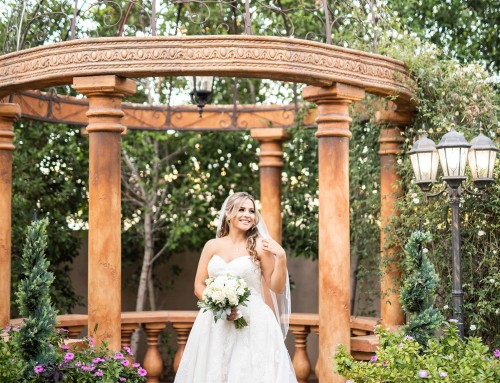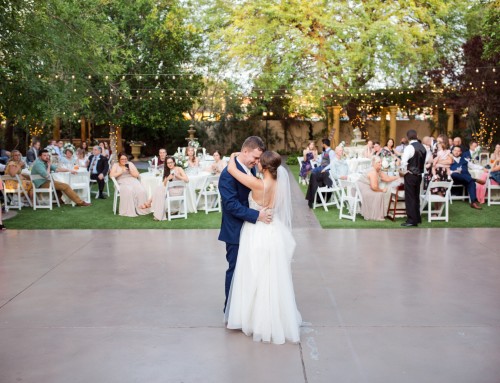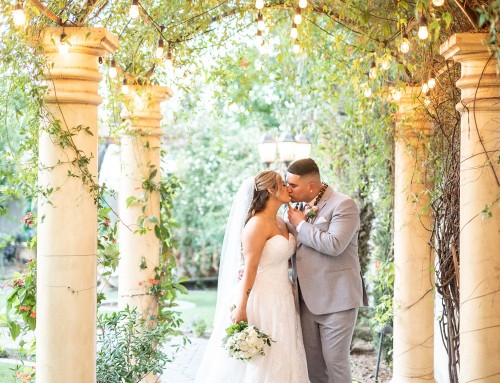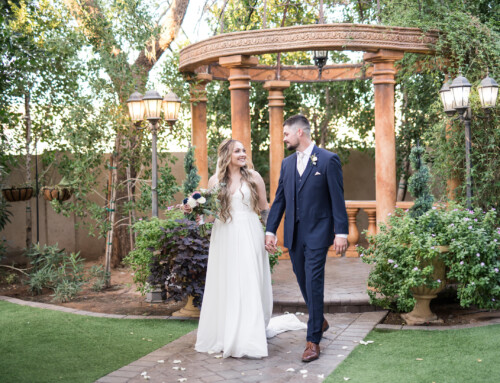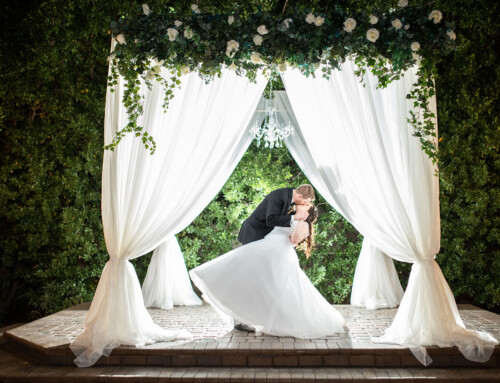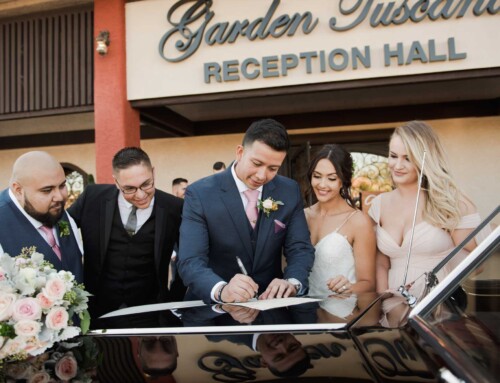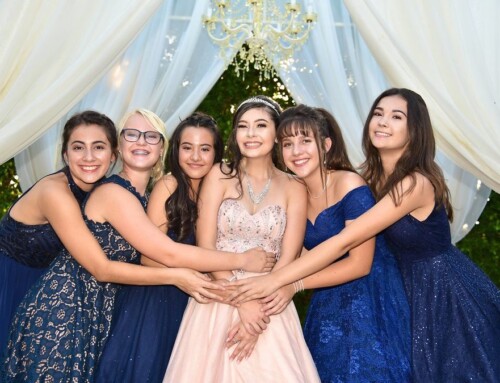You don’t have to be a poet, author, or writer to know how to write your wedding vows. However, if the thought of writing down how you feel makes you sweat, you’re not alone. A lot of people find it scary to write wedding vows, especially when they’re trying to say something so personal.
The good news? It’s not realistic to write a perfect promise; just write one. Even if you’re not a good poet or have only written birthday cards, you can still create something meaningful and memorable. Writing your wedding vows can be one of the most rewarding parts of planning your big day if you give yourself some structure, some ideas, and the right frame of mind.
This guide will show you easy, useful steps that will help you write vows that sound real, even if you don’t know how to write well.
How to Write Your Wedding Vows

One of the most important days of your life is your wedding day. You can use standard vows if you want to, but writing your own comes with its own story. This moment is your chance to tell the person you love the most what they mean to you in your own words.
Using personal promises will make your ceremony feel more unique and personal. Guests get a sense of how you two feel about each other, your sense of humor, your morals, and your hopes for the future. But the best part is that writing your own vows lets you make promises that are true to you and your journey—words that mean everything, not just lovely words.
You don’t need to be a great speaker; just be honest.
Forget the Pressure to Be “Perfect”
The idea that their promises need to sound like something from a romantic movie or best-selling book is one of the biggest things that stops people who don’t think of themselves as writers. The stress of having to be perfect, creative, or smart can stop you before you even start.
The truth is that no one is expecting you to be perfect. Your partner isn’t looking for perfect language or a well-rehearsed speech; they want to know if you’re being honest. Your family and friends aren’t judging the words you use; they’re just watching you share a real moment of love and commitment.
Simple promises are often the ones that mean the most. It can be more powerful than any image to say, “I love you because you make me feel safe.” If you fall or cry while reading, that’s not a sign of failure; it means that this moment is real.
Don’t think that your promises have to be perfect. Instead, work on making them seem real. After that, everything else is easy.
Reflect on Your Relationship

Before you start writing, give yourself time to think. This part isn’t about crafting sentences—it’s about recalling the moments, emotions, and reasons behind your decision to spend your life with this person.
Ask yourself some simple, meaningful questions:
- When did you know you were in love?
- What do you admire most about your partner?
- What’s something they do that always makes you smile?
- What challenges have you faced together, and how did you grow?
- What promises do you genuinely want to make for your future?
Don’t worry about turning these into vows just yet. Jot down phrases, memories, or even inside jokes that feel important. These notes don’t have to be polished—they’re raw material. You might write something like:
- “She brings me coffee every morning, no matter how tired she is.”
- “He calmed me down when I was overwhelmed with work and never made me feel bad about it.”
- “We survived moving into a 500-square-foot apartment and didn’t kill each other—this is real love.”
This is not a writing task; think of it as a casual brainstorm. The point is to collect parts of your connection that are important to you. You can then turn them into vows that are honest and true once you have them.
Choose a Vow Structure That Works for You
If you’re not sure how to organize your thoughts, using a simple structure can make the writing process feel much more manageable. Think of it as a guide, not a rulebook. A structure gives you direction so you’re not staring at a blank page wondering where to start.
Here are a few easy formats that work well, especially if writing isn’t your thing:
Past – Present – Future
- Past: A moment or story that captures your relationship’s beginning.
- Present: What you love about them right now.
- Future: The promises you want to make moving forward.
Example:
“I still remember our first date and how you laughed at all my bad jokes. Today, I love how you make me feel grounded and truly seen. I promise to stand by your side and support your dreams for the rest of our lives.”
List of Promises
- A straightforward list of the commitments you want to make.
Example:
“I promise to always laugh at your puns. I promise to never go to bed angry. I promise to love you on the good days, the hard days, and every ordinary day in between.”
Story – Lesson – Vow
- Start with a personal story, reflect on what it taught you, and follow with a meaningful vow.
Example:
“Remember that road trip when we got lost in the desert? You stayed calm, I panicked—and we somehow made it out with a great story. You’ve taught me to be patient and resourceful, and I vow to always trust your sense of direction in life.”
Choose the style that feels most natural to you. Once you have a framework, filling in the blanks becomes much easier.
Turn Notes Into Simple Sentences

There you have it: a structure and a list of memories or thoughts. Now it’s time to put them into words without overthinking it. You’re not trying to write the next great love song; you just want to be honest and clear with your partner.
Start by rephrasing some of your ideas as if you were talking to your fiancé. Use natural words, like how you’d talk to them in a real, heartfelt moment.
For example:
- Note: “He makes me feel safe.”
Vow: “I promise to always be your safe place, just like you’ve always been mine.” - Note: “She supported me during my job change.”
Vow: “Thank you for believing in me even when I was doubting myself. I promise to always be your biggest fan.”
It’s not necessary to use fancy words. Lines that are simple and honest get the most attention. It’s usually a good idea to read a line out loud to see if it sounds like something you’d say in real life.
The first step is to get it down on paper. You can always fix up the language later. Your vows will start to take shape and reflect your true self once you have a few honest, direct words down.
Add a Personal Touch
What turns good vows into unforgettable ones? The little things only the two of you understand.
Adding a personal detail—an inside joke, a shared tradition, a quirky habit—makes your vows feel genuine and unique. These small touches remind your partner (and everyone listening) that this isn’t a copy-and-paste moment. It’s your story.
Think about:
- A nickname only you use
- A place that means something to both of you
- A phrase you always say to each other
- A memory that captures your dynamic perfectly
Examples:
- “I promise to always save you the last slice of pizza—even if it’s pepperoni and I hate pepperoni.”
- “I’ll never stop dancing in the kitchen with you, even when the song is terrible.”
- “From our first camping trip in the rain to now, you’ve made every storm worth it.”
These little bits of “you” bring warmth and relatability to your vows. They show your partner that you’re not just promising love in a general sense—you’re promising to love them, exactly as they are.
Practice Saying Them Out Loud

After writing your vows down, saying them out loud is just as important as writing them down.
Reading your promises out loud will help you hear how they fit together. If a sentence looks good on paper, it might sound bad when you say it out loud, or you might find places where you want to stop. It also helps to calm down, so when the big moment comes, you’ll feel more sure of yourself.
Here are a few tips:
- Practice alone first. Stand in front of a mirror or practice reading aloud in a quiet room. Get comfortable hearing your voice.
- Time yourself. Aim for 1 to 2 minutes—long enough to say something meaningful, but not so long that you lose your audience.
- Print or write them clearly. Don’t rely on memory. Bring a printed copy or notecards with large, readable text.
- Breathe. It’s okay to pause. In fact, short pauses can make your words more impactful.
And remember: if you get choked up or stumble a little, that’s okay. Your vows aren’t a performance—they’re a promise. Emotion isn’t a mistake. It’s the whole point.
What If You Still Feel Stuck?
Even though all the steps are clear, some people still encounter obstacles. That’s fine. If you feel overwhelmed, there are a few steps you can take to address the issue.
First, think about having someone you trust read what you’ve written. A close friend, brother, or the person officiating the ceremony can help you organize your thoughts or make small adjustments without altering your tone.
Still can’t think of anything? A template or vow-writing prompt can help you get started. Professional vow-writing services can also make your ideas beautiful while keeping your tone. You still say what you want to say; they just help you say it better.
What’s most important? Don’t avoid writing vows because it’s hard. It is always more important to say something sincere, even if it isn’t right.
Sample Vows for Non-Writers
Occasionally, the easiest way to get started is by seeing how others have done it, especially if they also didn’t consider themselves natural writers. Here are a few short, sincere vow examples that show how powerful simple words can be:
Example 1 – “List of Promises” Style
“I promise to support your dreams, even when they scare me.
I promise to be your partner, your teammate, and your home.
I promise to listen, even when I think I’m right.
I promise to show up—on the easy days, the hard days, and every day in between.”
Example 2 – “Past, Present, Future” Style
“When we first met, I never expected that you’d become my person.
Today, I love your patience, your loyalty, and your ability to make me laugh when I least expect it.
And in the future, I promise to keep choosing you, over and over again, no matter what life brings.”
Example 3 – “Story + Lesson + Vow” Style
“I’ll never forget the day we got caught in that downpour and you just laughed like it was the best thing ever. That day, I learned you make every moment better—rain or shine. I promise to find joy in the chaos with you, and to never take your laughter for granted.”
Let these examples inspire you—but don’t feel like you have to copy them. Your vows will be most powerful when they sound like you.
Reminder for How to Write Wedding Vows

Writing your wedding vows doesn’t have to be difficult, even if writing isn’t your strongest skill. The most important thing is that your words come from the heart, not how well they are put together. Your vows should show your relationship and the promises you’re making for the future, whether they’re funny, serious, short, or long.
Don’t rush, stick to a plan that makes you feel good, and don’t be afraid to get personal. Your partner isn’t looking for perfection; they’re looking for you.
For me, the best promises are those that are honest, show care, and sound genuine. You don’t even have to be a writer to do that.
Request an Accurate Quote
Please include your contact details, event date and amount of guests.
- Pricing is determined by your event date and amount of guests.
- Wedding packages can be customized to fit your needs and budget.
- Villa Tuscana offers interest-free monthly payment plans
Office Hours
Monday: 2:00 pm – 7:00 pm
Tuesday: 11:00 am – 7:00 pm
Wednesday: 11:00 am – 7:00 pm
Thursday: 11:00 am – 7:00 pm
Friday & Saturday: 10:00 am – 2:00 pm
Sunday: Closed
Address: 1915 W Guadalupe Rd Mesa, AZ 85202
Phone: (480) 839 2727
FAX: (480) 839 2728


